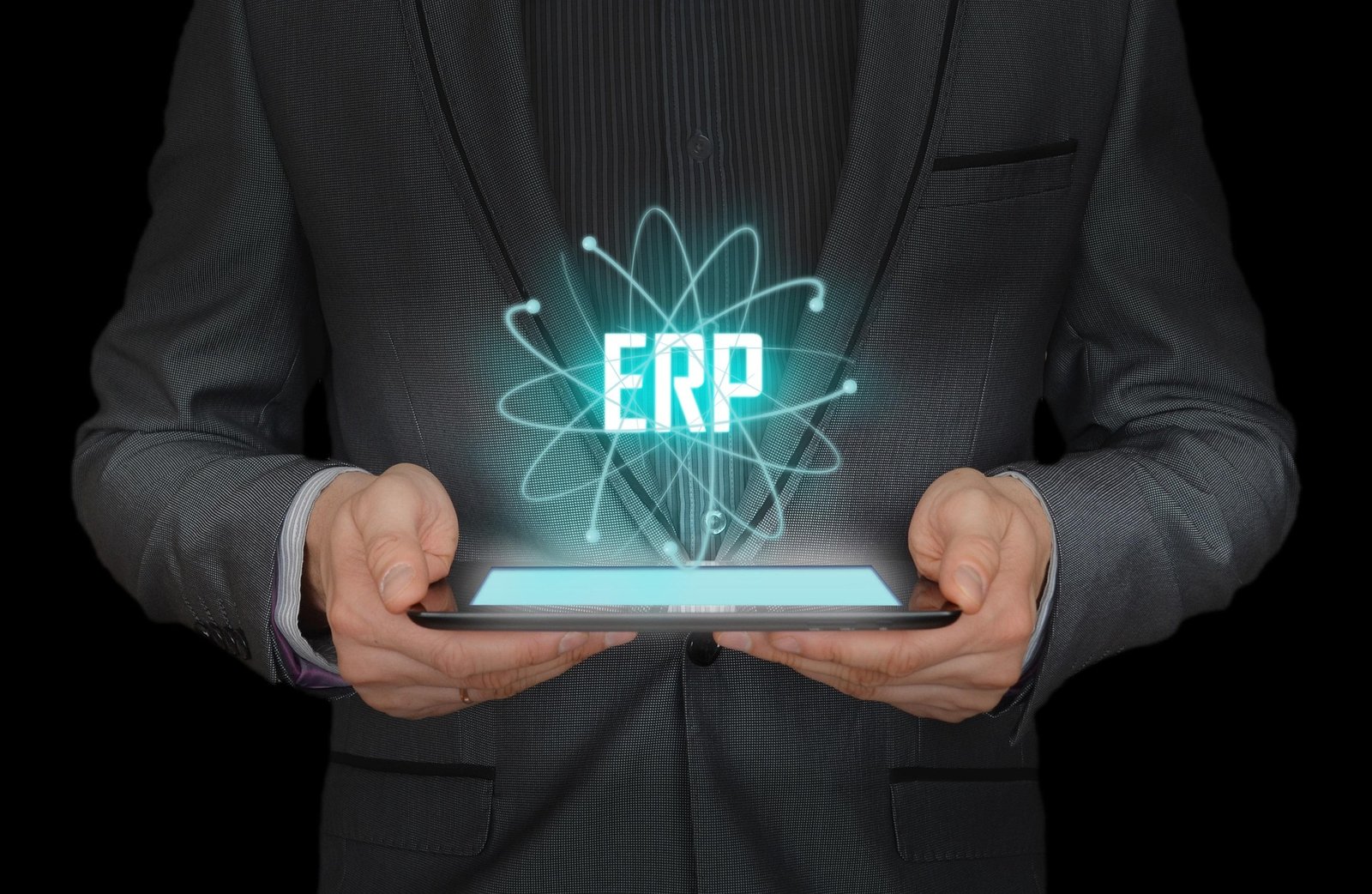Choosing the right ERP system (Enterprise Resource Planning system) is one of the most crucial decisions any growing business can make. The right ERP can streamline operations, enhance efficiency, and help you scale your business in a smooth, cost-effective way. In this guide, we’ll break down how to choose the best ERP system for your business, ensuring you get a solution tailored to your unique needs. We’ll also highlight the benefits of ERP systems and provide a clear call-to-action for your next steps.
What is an ERP System?
An ERP system is a software solution that integrates all the essential functions of a business—finance, supply chain, human resources, inventory, sales, and customer relationship management (CRM)—into one centralized platform. The primary goal of an ERP system is to streamline processes and improve data accuracy across departments, enhancing collaboration and decision-making.
Given that every business has different needs, it’s important to choose an ERP system that suits your business size, industry, and goals. Let’s dive into the key factors you should consider before making your choice.
1. Understand Your Business Needs
Before evaluating ERP systems, take time to assess your business requirements. The ideal ERP system depends on the functions that are most critical to your operations. For example, if your business is in manufacturing, you’ll need a system that excels in inventory management, procurement, and production scheduling. On the other hand, a retail business might focus on point-of-sale (POS) integration, customer data, and order fulfillment.
Key questions to ask include:
- What are the main processes you need to automate? For example, accounting, inventory, HR, or CRM.
- What is the scale of your operations? Is your business local, regional, or international?
- What are your growth projections? Make sure the ERP system can handle the business’s future expansion.
- What challenges are you facing with your current system? Are you dealing with inefficiencies, data silos, or slow decision-making?
The clearer you are about your specific business needs, the easier it will be to choose an ERP system that fits perfectly.
2. Determine the Essential Features You Need
There are various ERP systems available, and each offers a different range of features. While all ERP systems aim to streamline operations, some systems focus more on certain functions, while others offer comprehensive solutions that cover all areas. The key is to identify the features that will help your business most.
Here’s a breakdown of the essential features you may want to consider:
- Financial Management: Your ERP should have capabilities to handle accounting, financial reporting, accounts payable/receivable, payroll, and taxes.
- Inventory and Supply Chain Management: Look for tools that help you manage stock levels, purchase orders, suppliers, and logistics. This is especially important for businesses dealing with physical goods.
- Customer Relationship Management (CRM): A strong CRM module will allow you to manage customer data, track sales, and build better relationships with your customers.
- Human Resources (HR): If your business has many employees, an ERP that integrates HR functions such as payroll, benefits, and performance management can save time and reduce errors.
- Analytics and Reporting: Real-time data reporting and custom analytics help you make informed decisions quickly. You need a system that generates detailed reports for better business insights.
- Project Management: For project-based businesses, you’ll need project planning, resource management, time tracking, and budget controls.
By clearly defining your must-have features, you’ll be in a better position to evaluate ERP systems based on your business requirements.

3. Scalability and Flexibility Are Key
As your business grows, your ERP system needs to grow with it. A scalable ERP system can accommodate additional users, locations, products, or even market expansions. Some businesses might start small with a basic set of features but later require more advanced capabilities as they grow.
Make sure the ERP system you choose allows for easy upgrades and customization. Many systems offer modular features, so you can add new functionalities as your business needs change. If your business is expanding internationally or adding new product lines, scalability will be critical for ensuring your ERP system meets those demands.
4. Cloud-Based vs. On-Premise ERP Systems
When selecting an ERP system, one of the most significant choices you’ll face is whether to opt for a cloud-based ERP system or an on-premise solution. Each option has its advantages and drawbacks, so it’s essential to understand how they differ:
- Cloud-Based ERP Systems: Cloud ERP solutions are hosted on remote servers, and you access them via the internet. These systems are typically more affordable upfront because they are subscription-based rather than requiring heavy hardware investment. They offer flexibility, as users can access the system from anywhere, and maintenance and updates are managed by the vendor.Advantages: Lower initial costs, automatic updates, remote access, and scalability. Disadvantages: Subscription costs over time, security concerns, and reliance on an internet connection.
- On-Premise ERP Systems: On-premise systems are installed on your own servers, meaning you control the infrastructure and data. These systems may have higher upfront costs, but they give you greater control over security and customizations. However, they also require more IT maintenance and support.Advantages: Full control over data, customization options, no ongoing subscription fees. Disadvantages: High initial cost, ongoing maintenance, limited remote access.
Consider your company’s needs, IT resources, and future growth plans when deciding between the two options.
5. Usability and User-Friendliness
An ERP system might be feature-rich, but if it’s too difficult for your team to use, you won’t see the desired results. A user-friendly interface that allows easy navigation is crucial for ensuring quick adoption by your employees. Look for a system with intuitive design, clear dashboards, and minimal training requirements.
The system should also have good customer support and training resources, including documentation and online tutorials. A responsive support team is critical for resolving issues quickly and ensuring that your team gets the most out of the software.
6. Integration with Other Software
Your ERP system will likely need to interact with other software tools that your business uses, such as CRM systems, eCommerce platforms, or email marketing tools. Look for an ERP system with strong integration capabilities.
Some systems offer pre-built integrations with popular software, while others have open APIs, allowing you to create custom integrations. The more easily your ERP system integrates with existing tools, the less disruption you’ll face when implementing it.
7. Consider the Total Cost of Ownership (TCO)
When evaluating ERP systems, the upfront cost is only one part of the equation. You need to consider the total cost of ownership (TCO), which includes not just the software but also implementation, customization, maintenance, and training costs.
- Cloud-Based Solutions: Usually, these systems have lower initial costs, but ongoing subscription fees can add up over time.
- On-Premise Solutions: These tend to have higher upfront costs (hardware, software, installation), but they come with fewer ongoing fees.
Be sure to request detailed pricing information from ERP vendors and calculate the total cost over several years to understand how much the system will cost you in the long run.
8. Prioritize Security and Data Privacy
ERP systems handle a lot of sensitive business data. It’s vital to choose a system that follows industry-standard security practices. Look for systems that provide data encryption, role-based access control, secure authentication, and regular security updates.
For cloud-based ERP solutions, ensure that the vendor follows the necessary data privacy regulations (like GDPR) to protect your customer and employee data.
9. Reputation of the ERP Vendor
Finally, take the time to research the ERP vendor’s reputation. A trusted, experienced vendor can be invaluable in ensuring a smooth implementation and providing ongoing support. Check for customer testimonials, reviews, and case studies to learn more about the vendor’s reliability and how the ERP system works in practice.
Additionally, you can reach out to other businesses in your industry to ask about their experiences with the ERP system you’re considering.
10. Take Advantage of Demos and Trials
Most ERP vendors offer free demos or trial periods. Take full advantage of these to test the system in a real-world environment. Doing so will help you evaluate how well the software fits with your business processes, and whether it’s truly user-friendly. This trial period is the best way to gauge the system’s effectiveness before making a long-term commitment.
Key Benefits of Implementing an ERP System
- Improved Efficiency: Automation and real-time updates help streamline workflows.
- Better Decision-Making: ERP provides data-driven insights for informed business decisions.
- Cost Savings: Reducing redundancies and errors saves time and money.
- Scalability: An ERP system grows with your business, allowing for seamless expansion.
- Enhanced Collaboration: A centralized system promotes better communication across departments.
Making an Informed Choice for Long-Term Success
Choosing the best ERP system for your business is a strategic decision that can drive efficiency, reduce costs, and improve decision-making. By considering your business needs, essential features, scalability, and costs, you can find an ERP solution that will help you thrive both now and in the future.
If you’re ready to find the perfect ERP system for your business, TechB2BShoot is here to help. We specialize in connecting businesses with the best ERP solutions tailored to their specific needs. Contact us today for a free quote and let us guide you in choosing the ERP system that will help your business succeed.






